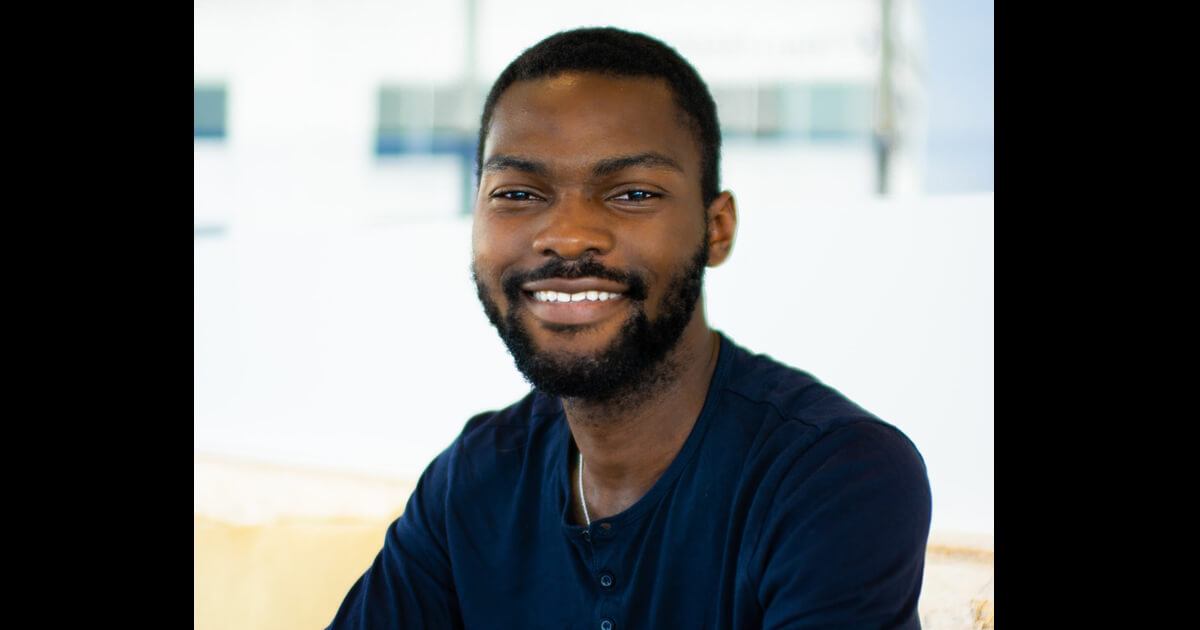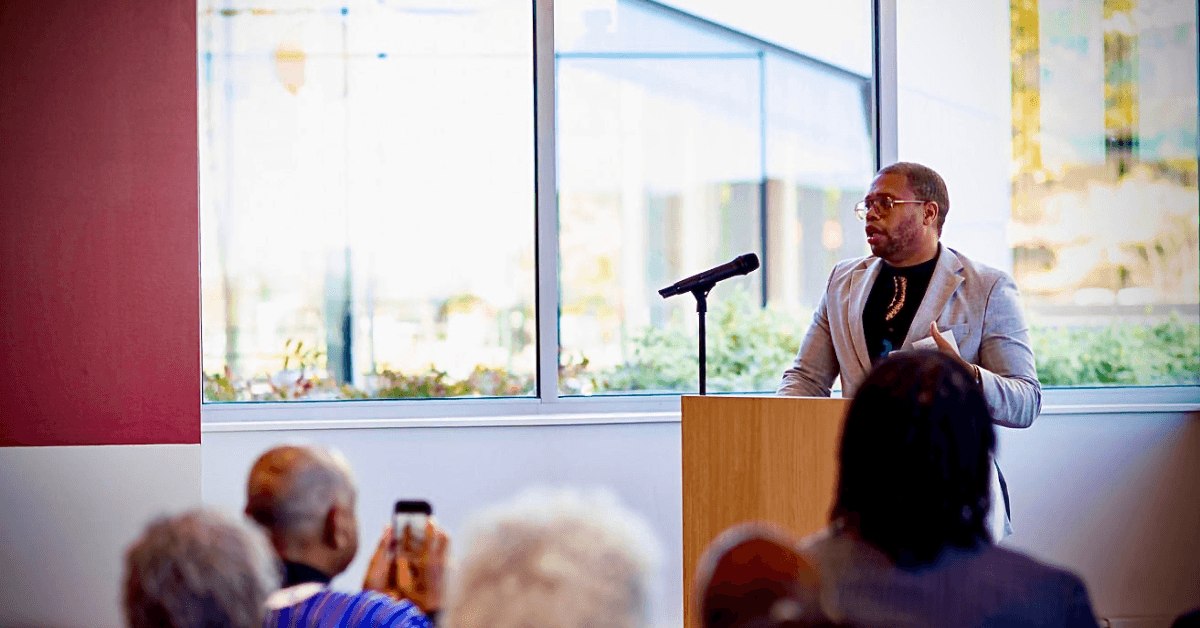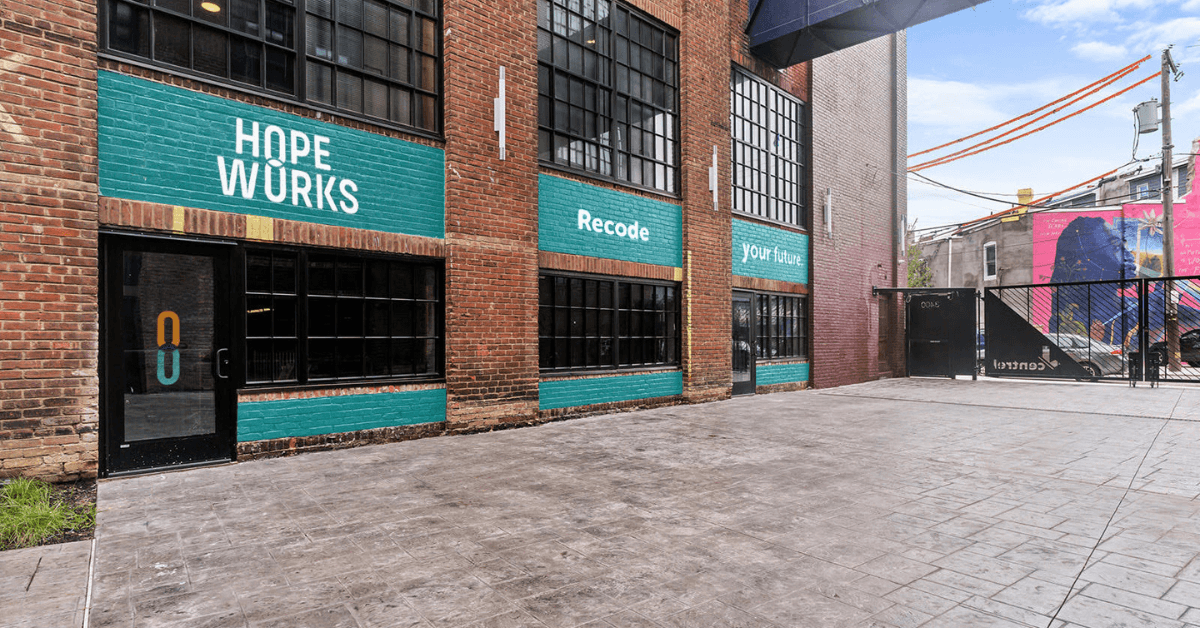Nicodemus Madehdou used video games to connect with a new culture and make friends when he moved from Monrovia, Liberia to Philadelphia at 9-years-old. Games like RuneScape, a multiplayer fantasy game, helped Madehdou bridge cultural differences. Now his video game production studio is hoping to help diversify the industry.
“I didn’t know anybody, I didn’t have any friends and I didn’t know how to start that conversation because it was a new environment. The first place I started making friends was on the computer playing games. That was what started my whole interest in games,” he recalls. “I asked myself, ‘How is it that somebody can create worlds and experiences that bring people together and how can I accomplish that in the future?’”
The 24-year-old is nearly a decade into his career as the founder of Jumpbutton studios, a company that hopes to inspire change within the gaming, animation and app industries when it comes to diversity. Early Jumpbutton projects included Madehdou and his co-founders, Calbert Warner and Daniel Ostermiller, working with Temple University to make a research project for K-12 students – a demographic that at the time also included the founders – more engaging. They also worked with the university to create an app that utilized AI and machine learning to help someone struggling with memory loss. More recently, Jumpbutton developed the app for Philly-based food delivery service, Black and Mobile, that allows consumers to order from Black-owned restaurants.
Madehdou says his desire to diversify tech stems from his own personal experiences as a young entrepreneur. As a teenager being hired to create apps, games and animations for local companies, he noticed there were often few Black people involved in the process.
“How can we become that workforce, that stepping stone, that other companies can either tap into or work with,” he says. “[With] our own internal assets we build from the ground up. How can we create things that allow larger companies to realize there is a benefit to having this diverse team?”
(For more on JumpButton Studios, check out the Plug/WURD Radio’s Interview with Nicodemus Madehdou and Jumpbutton’s lead developer, Michael Berthaud)
A 2019 global study conducted by the International Game Developers Association (IDGA) found that 71% of game developers are men and 69% are white. Madehdou first conceptualized and launched Jumpbutton Studios when he was 15. As a high school student he’d applied for internships at major tech companies, hoping to further develop his passion for technology. He wasn’t a college student and was ineligible for the opportunities. He never heard back. So, he decided to put together a team – including co-founders who were based in California and New York – and form his own company despite only knowing how to build websites, not games, at the time. By 2016, he’d been given the opportunity to showcase a mobile app game he’d created at the White House through the Entertainment Software Association (ESA) and the Hispanic Heritage Foundation’s LOFT (Leaders on the Fast Track) Video Game Innovation Fellowship.
As teenagers, Madehdou and his team were content with making a name for themselves and growing their company through small projects and unpaid work. But, with adulthood, came a new set of priorities for the Jumpbutton founder. “When we started this, none of us were thinking [about how] eventually we’re going to need money.” he said, chuckling. “I think that’s one of the things that we’ve learned in the past two years. I wouldn’t change anything or any of the experiences we’ve had, but it would’ve been smarter to have thought about that sooner than later.”
Jumpbutton has about 15 employees, many of whom Madehdou says work part time and are committed to the company because they believe in its mission. But, this year, Madehdou, has set some ambitious financial goals. The company currently profits about $7,000 to $12,000 per month, but by the end of the year he hopes to have raised $2 million. “What we’re trying to do is tap into a lot of commitments that a lot of these companies have made to the Black community in trying to make the landscape more equal and fair. We can’t go the traditional, normal VC route because we are not looking to exit or be acquired presently,” he said. “Now, more than ever, there’s a lot of opportunities to secure money in creative ways and thanks to that I feel we’re in a better opportunity to be able to accomplish our goal.”
Madehdou says the racial uprisings during the summer of 2020 helped create additional funding opportunities for Black entrepreneurs, but he stresses that there’s still a long way to go when it comes to making tech more diverse. He says he hopes Black-owned companies like Jumpbutton will one day be at the center of creating mega successful games such as Rockstar Game’s Grand Theft Auto. “Until I see that, I’m not going to be happy with the gaming space, as much as I love it.”
This story is part of a partnership with WURD radio covering technology, business, and innovation in Philadelphia. This vital work is possible with support from the Philadelphia COVID-19 Community Information Fund, an effort by Independence Public Media Foundation (IPMF) and the Knight-Lenfest Local News Transformation Fund (Knight-Lenfest Fund).








